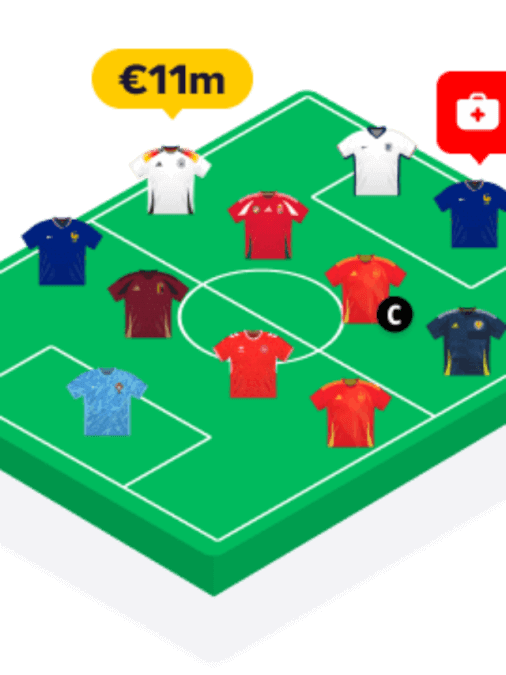In the world of youth athletics, nutrition is often considered the cornerstone of a successful performance. While meal plans filled with balanced macronutrients are essential, incorporating superfoods can give young footballers an edge in their energy levels, endurance, and recovery.
Superfoods—nutrient-rich ingredients packed with vitamins, minerals, and antioxidants—can play a transformative role in how athletes perform both on and off the field. This article delves into why superfoods matter and how to easily incorporate them into daily meals.
What Are Superfoods?
Superfoods are often defined as foods with a high concentration of nutrients that provide health benefits beyond basic nutrition.
These foods are loaded with vitamins, minerals, antioxidants, and fiber—all of which contribute to overall well-being, improved recovery, and enhanced performance for young athletes.
For example, superfoods like chia seeds and quinoa are excellent sources of energy and recovery-boosting nutrients, while berries offer powerful antioxidants that aid in reducing inflammation.
Superfoods aren’t just for adults—they’re crucial for young footballers whose bodies are still developing and are subject to the wear and tear of rigorous physical activity. They provide that extra boost athletes need for both training and competition.
For more detailed insights into how balanced nutrition affects young players, check out our article on macronutrients, which breaks down what carbohydrates, proteins, and fats do for athletic performance.
Key Superfoods for Young Athletes
Chia Seeds
Chia seeds are tiny but mighty. Packed with omega-3 fatty acids, fiber, and protein, they are ideal for boosting endurance and promoting hydration.
When chia seeds absorb water, they form a gel-like consistency, helping athletes retain fluids longer—a key factor in staying hydrated during games and practices.
Chia can easily be incorporated into smoothies or yogurt, making them a convenient option for both busy mornings and post-game recovery.
Want more ideas for quick, energy-filled breakfasts? Check out our guide to building a winning breakfast for footballers.
Quinoa
Quinoa is one of the few plant-based sources that contain all nine essential amino acids, making it a complete protein. This makes it an ideal choice for muscle recovery and sustained energy throughout the day.
Quinoa can be used in a variety of dishes—from salads to breakfast bowls—and is a versatile, nutrient-rich alternative to more traditional grains like rice or pasta.
For pre-game meal ideas packed with energy and nutrition, read our article on what to eat before a big match.
Berries (Blueberries, Strawberries, etc.)
Berries are well-known for their antioxidant properties, helping to reduce inflammation and support muscle recovery. The high vitamin C content also strengthens the immune system, keeping young athletes healthy and ready for the next game. Berries are perfect in smoothies, snacks, or as a topping for oatmeal and yogurt.
Learn more about the role of antioxidants and how they contribute to a footballer’s recovery in our article on post-game recovery.
Spinach and Kale
These leafy greens are packed with iron, calcium, and vitamins A, C, and K—crucial nutrients for young athletes who need to maintain strong bones, good vision, and efficient oxygen transport. Incorporating spinach or kale into meals can enhance both performance and recovery, particularly when used in smoothies, salads, or even as pizza toppings.
If you’re looking for ways to introduce more nutrient-dense foods into your child’s diet, especially ones rich in vitamins, our piece on the role of vitamins and minerals in football performance is a great resource.
Sweet Potatoes
Sweet potatoes are a staple in many athletes’ diets due to their high content of complex carbohydrates, fiber, and vitamin A.
These nutrients provide long-lasting energy and are ideal for fueling practices and matches. Sweet potatoes can be baked, roasted, or mashed, offering versatility in meal preparation.
For more energy-boosting foods, be sure to read our guide to the top 10 energy-boosting foods for young footballers.
Nuts and Seeds (Almonds, Walnuts, Pumpkin Seeds)
Nuts and seeds are rich in healthy fats, protein, and magnesium, all of which are crucial for reducing muscle fatigue and supporting heart health.
These make excellent snacks for footballers, especially during long tournaments or intensive training sessions. They can be added to smoothies, yogurt, or eaten on their own as a quick, energy-packed snack.
For more snack ideas that you can bring to the sidelines, check out our article on healthy snack options for young players.
Recipes Incorporating Superfoods
Chia Seed Pudding
- Ingredients: 2 tablespoons chia seeds, 1 cup almond milk, 1 tablespoon honey, mixed berries.
- Instructions: Mix chia seeds, almond milk, and honey in a bowl. Let it sit in the fridge for a few hours or overnight. Top with berries before serving.
- Benefits: Provides hydration and sustained energy for morning practices.
Quinoa Salad with Grilled Chicken
- Ingredients: 1 cup cooked quinoa, 1 grilled chicken breast, spinach, cherry tomatoes, olive oil.
- Instructions: Combine cooked quinoa, grilled chicken, spinach, and cherry tomatoes. Drizzle with olive oil and serve.
- Benefits: A complete meal packed with protein, fiber, and essential nutrients to support recovery.
Berry Smoothie Bowl
- Ingredients: 1 cup mixed berries, 1/2 cup Greek yogurt, 1 tablespoon chia seeds, granola.
- Instructions: Blend the berries and yogurt until smooth. Pour into a bowl, sprinkle chia seeds and granola on top.
- Benefits: High in antioxidants and protein to help with post-game recovery.
Sweet Potato Breakfast Hash
- Ingredients: 1 large sweet potato (cubed), spinach, 2 eggs, olive oil.
- Instructions: Sauté sweet potato in olive oil until soft. Add spinach and cook for a minute. Serve with two poached eggs on top.
- Benefits: A hearty breakfast option that fuels young athletes with complex carbohydrates and protein.
Why Superfoods Matter for Athletic Performance
Superfoods can significantly impact young athletes’ performance by providing essential nutrients that improve energy levels, support recovery, and build endurance.
By consistently incorporating these nutrient-dense foods into their diet, young footballers can boost their physical abilities and reduce the risk of injury.
Superfoods are only one part of the bigger picture when it comes to proper nutrition for athletes. To understand how all components of a well-balanced diet work together, take a look at our comprehensive article on the importance of proper nutrition for young footballers.
Key Takeaway Table
| Superfood | Benefits | How to Use |
|---|---|---|
| Chia Seeds | Endurance, hydration | Smoothies, yogurt, energy balls |
| Quinoa | Muscle recovery, sustained energy | Salads, breakfast bowls |
| Berries | Antioxidants, recovery | Smoothies, snacks |
| Spinach & Kale | Bone health, oxygen transport | Smoothies, salads |
| Sweet Potatoes | Long-lasting energy | Baked fries, mashed, roasted |
| Nuts & Seeds | Healthy fats, reduced muscle fatigue | Snacks, trail mixes |
By making small changes to include these superfoods in everyday meals and snacks, young athletes can see significant improvements in their performance and recovery. Whether you’re preparing for a big match or simply looking to maintain energy during long training sessions, superfoods can make a powerful difference in how athletes fuel their bodies.









